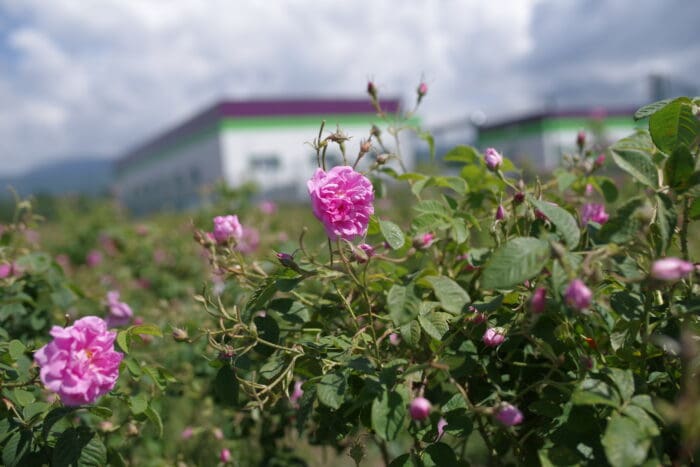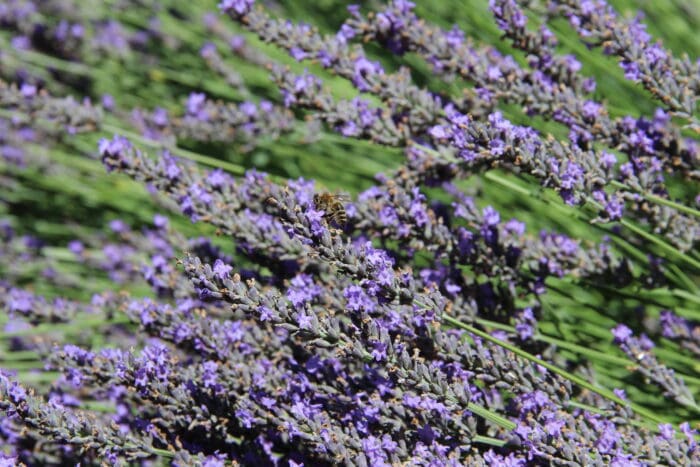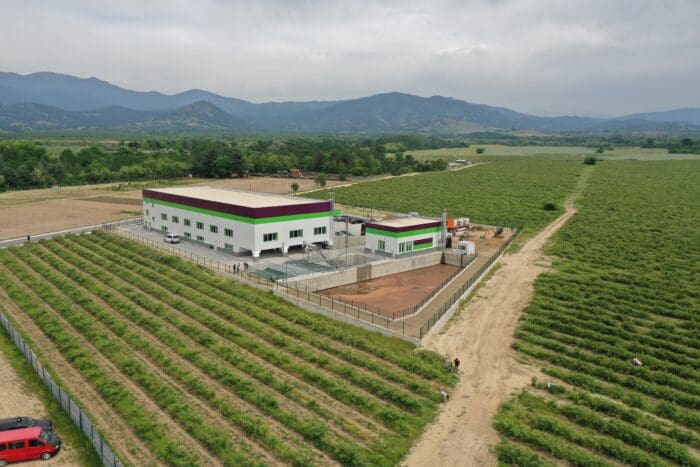August, 2023
Rose Oil Bulgaria
There are currently 5,500 hectares of rose fields in Bulgaria, with approximately 3,000 growers overseeing these fields. On any given day, there are around 25,000 pickers involved in the rose harvest, collecting more than 15,000 metric tons of rose flowers each month. While this number may seem high, it is actually relatively low compared to previous years: in 2021, there were more than 50,000 rose pickers working on a daily basis during the Bulgarian rose season. The current lack of workers is mainly attributed to competition from other sectors: fruits and other food crops remain in high demand, and arms manufacturing has also greatly expanded within Bulgaria due to the war in Ukraine.

This year, prices for rose flowers climbed significantly due to major production issues in Turkey, difficulties sourcing labor, and high inflation rates throughout Europe. Although energy costs in Bulgaria have massively declined since 2022 (-45%), they remain higher than their 2021 and other pre-war season averages (+17%). Despite these detracting factors, overall rose yields in Bulgaria have increased due to very favorable weather throughout the growing season, leading to a total output of around 2000 kilos for Bulgarian rose oil.
Lavender Oil Bulgaria
Of the 12,000 hectares that were once reserved for lavender production in northern Bulgaria, only about 4,000 hectares remain as of 2023. The total production acreage for the entire nation is now estimated at just 5,000 hectares, which represents a significant decline compared to previous seasons. Each hectare can produce an average of 35 – 50 kilos of lavender oil, depending on regional weather conditions and pest issues. This year, large quantities of carryover material from previous seasons are currently disguising just how little material is being produced within Bulgaria. It is also currently impossible to determine how much of this carryover material is commercially viable due to quality variances, high camphor, low linalyl acetate, and other potential issues.

Bulgaria is currently on track to produce 200-250 metric tons of lavender oil in the 2023 season. With the French production of lavender also declining year after year due to high temperatures and massive insect attacks, it seems as though the market will soon be entering a 2-year drought for new material. Competition from other crops, such as cereals, remains high in many lavender-producing regions, which has the potential to further reduce supply. Other regions, such as Spain and China, have experienced their own challenges with the long-term sustainability of lavender due to poor growing conditions.
The Future of Berjé Trakia
Through our partners at Berjé Trakia, we maintain a significant community of contracted rose growers, providing us with a guaranteed supply of raw materials each season. We are currently on track to expand this community by 2025, which will greatly increase our production capabilities within Bulgaria.
As one of the largest producers of Bulgarian rose oil, Berjé Trakia plays a vital role in local agriculture, as our partnership provides farmers with guaranteed payment for the flowers they collect each day. Our partnership also supports Good Agricultural Practices (GAP) within the region, which guarantees our growers access to additional financial resources via local government organizations.

When it comes to lavender production within Bulgaria, 2023 is shaping up to be a very challenging year. Demand for the material is low, which is driving many farmers away from the crop. However, it is imperative that we retain our connections at-source via Berjé Trakia, as the day will eventually come when lavender oil is once again in short supply. Our current community of growers is more than capable of producing large quantities of lavender for processing. By encouraging these growers to stick with their lavender fields, even amidst market turbulence, we can secure a much better and more stable future for this historic component of the global flavor and fragrance industry.
Posted In:
Essential Oil Expert - Feature Articles - Market Report - 2023 Harvest Season - Berje Group - Berje Trakia - French Lavender Oil - In The Fields - Lavender Oil 40/42 - Lavender Oil Bulgarian - Lavender Oil Chinese - Lavender Oil Spanish - Lavender Oil Starosel - Rose Oil Bulgarian - Rose Oil Turkish - Russia - Ukraine
Written By
Berjé PurchasingPurchasing Dept.